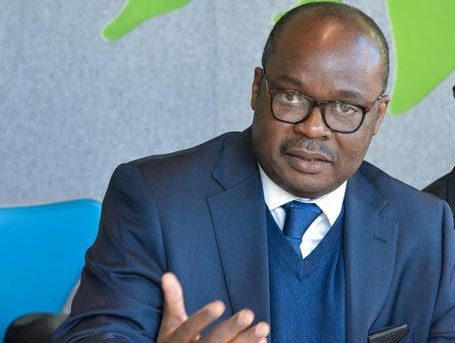The Bank of Ghana (BoG) has responded to claims made by former President of the Volta Regional House of Chief, Togbe Afede XIV, to the effect that interest rate in Ghana is high, as erroneous and misleading.
According to the Central Bank, some issues raised by Togbe Afede XIV about the bank’s conduct of monetary policy and its governance structure is spurious.
“This is where the incidence on the fiscal is critical and why the Government of Ghana will have to pay a higher interest rate to borrow to service debt compared to the UK. The interest rate floor of the policy corridor are completely different for the two economies. And for that reason, the rate at which the Bank of Ghana’s Monetary Policy rate will be effective in helping manage liquidity and achieve the price stability objective, is constrained by the debt service cost and public sector borrowing requirement dynamics on interest rates”, it pointed out in a statement.
“It is therefore completely erroneous and misleading and spurious analysis to simplify the monetary policy stances comparison with just the overall debt-to-GDP comparison of two completely different economies with different fundamentals”, it added.
The Bank of Ghana further explained that the Ghanaian currency is not a reserve currency as compared to the United Kingdom’s Pounds Sterling which means sovereigns and central banks are keen on holding such assets as part of their reserves.
Togbe Afede XIV also said Ghana would have to pay premiums resulting in the issuance of debt at a higher cost because the cedi is not convertible.
But the Bank of Ghana argued that ”it is important to bring other perspectives in context to show why the analysis in the said article can at best be generously described as spurious. It is also important to note that the UK debt is highly printable.”
“For this very reason, the UK Government is able to issue debt at a lower cost to support monetary policy conduct. This argument does not hold for only the Pounds Sterling but for all SDR basket of currencies like the US dollar, Japanese Yen, the Euro etc”.
It explained further than “the Ghana Cedi is not yet convertible even in the sub region and let alone considered as a reserve currency. What this means is that in order to attract inflows Ghana will have to pay a premium, resulting in the issuance of debt at a higher cost”.
Latest Stories
-
OSP lied about Ofori-Atta’s medical report – Frank Davies claims
8 minutes -
Defence Minister welcomes Northern chiefs in Central Region, praises their support
15 minutes -
Ghana’s most potent weapon against corruption is OSP – Kissi Agyebeng
25 minutes -
World Environment Day 2025: A call to eliminate plastic pollution in Africa
29 minutes -
Eid al-Adha celebration: Mahama prays for global peace
33 minutes -
Environment Minister calls for attitudinal change to end plastic pollution
34 minutes -
NAPO urges politicians, public office holders to embrace accountability
34 minutes -
Finance Minister hails outcome of National Economic Dialogue
44 minutes -
Ishmael Yamson appeals to Mahama to institutionalise National Economic Dialogue
46 minutes -
Bank of Ghana expands gold reserves amid global economic volatility
53 minutes -
Sunda International donates to Eid Al-Adha 2025 celebrations
1 hour -
KIVO donates to Eid Al-Adha 2025 celebrations
1 hour -
Ken Ofori-Atta is not sick, he’s playing hide and seek with OSP- Tanko Computer
2 hours -
“Aluta Continua”: Nurses’ strike persists as GRNMA awaits official injunction notice
2 hours -
A New Dawn in New Juaben: Daasebre Kwaku Boateng III’s visionary leadership ushers in transformation and unity
2 hours

